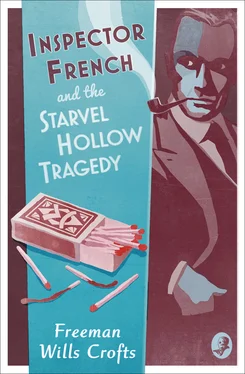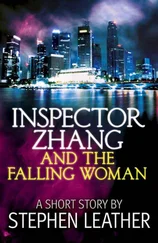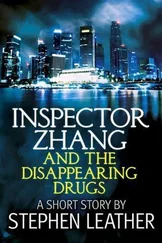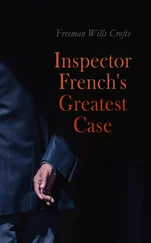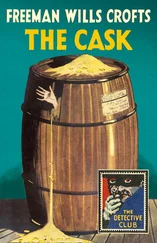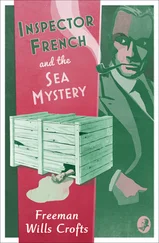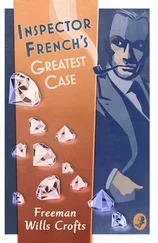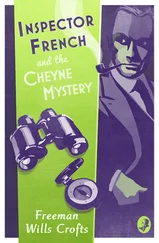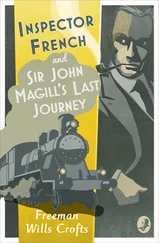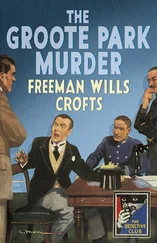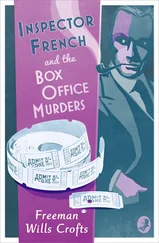As the long evening dragged away she found herself hoping against hope that Whymper would call. But there was no sign of him and she supposed he had not heard of her return.
Sergeant Kent, however, had heard of it, and about eight o’clock he called and asked to see her. He was a tall, rather brusque man, though in Oxley’s presence he was polite enough. He questioned her as to the household and its personnel, but she had nothing to tell him which could throw any light on the tragedy.
The next day it was found possible to attempt some research work among the ruins, and by ten o’clock a number of men were engaged in removing the cooler portions of the débris. Ruth insisted that she must see the place for herself, and the Oxleys, not liking to let her go alone, drove her out in their car. But the terrible picture which met her eyes and the thought of what lay below the sinister mound where the men were working made her feel almost sick with horror. Her feelings too, had changed. Gone was her hatred of the place, and particularly of the three poor people who had met with such an appalling fate. She felt she had been wicked to hate them. Her uncle had been a recluse and fond of money no doubt. But in his own way he had always been kind to her. He had opened his door to her when she was a homeless child, and had since supported her without grudging the money she must have cost him. And he had been ill—continuously ill; and when people are ill they cannot help being depressed and a little trying to others. And the Ropers, had she not misjudged them also? In their own way, they, too, had always been kind to her. For the first time, Ruth saw that the lives of the couple must have been as dull and grey as her own. Though their jobs were underpaid, and rather thankless, they had not complained. And she, Ruth, had never shown an appreciation of their services. She saw now that she had really had no reason at all for hating them, and when she thought of their terrible death, her tears flowed. In silence she allowed Mrs Oxley to lead her back to the car and drive her to Thirsby.
On their way to the little town the second blow fell on the young girl, and coming so quickly on the first, left her weak and trembling. As they mounted the rim of the Hollow they saw a funeral approaching along a converging road. It was a sorry procession; only the hearse, and the vicar and Dr Emerson in the former’s car. As the two ladies drew up for it to pass, the vicar also stopped, and he and the doctor came over to express their sympathy with Ruth.
‘You will be sorry for poor Mr Giles, also, Miss Ruth,’ the vicar went on. ‘I understood you were kind enough to help him in his scientific researches.’
Ruth stared at him in horror.
‘You don’t mean,’ she stammered, ‘that Mr Giles is—is dead?’
‘He died the day before yesterday, I’m sorry to say. After a short illness he passed away in his sleep. He had no suffering. But, only thirty-six! Truly, another tragedy of the War.’
Ruth was stunned. Markham Giles, also! To lose at one blow all four persons whom she had known best—the only four persons in the world she had known at all well! It was too much.
She pulled herself together, however, and insisted on following her friend’s body to its last resting-place, but when she reached the Oxleys’ house she broke down altogether. Mrs Oxley put her to bed and at last she sobbed herself to sleep.
That evening the charred remains of three human bodies were found within the tragic walls of Starvel.
When Ruth Averill awoke next morning she found that the overwhelming sense of sick horror which had weighed her down on the previous evening had lightened. She had been worn out in body from the shock and the nervous strain, but sleep had restored her physical wellbeing, and her mind reacted to her body. She was young, she was in perfect health, and—she was in love.
While her feelings of compassion for the trio who had lost their lives in so terrible a way was in no whit lessened, she would have been less than human had she not begun to look upon the tragedy as it affected herself. And here at once was something exciting and a little terrifying. What would happen to her now? She had hated her life at Starvel; would the life that lay before her be better or worse? Scarcely worse, she thought; any change must surely be for the better. She had intended while at York to make some inquiries about earning her own living so that she might leave Starvel. Now this was no longer a matter of choice; in some way she must learn to support herself. Vaguely she wondered if any of her uncle’s money would come to her. But she dismissed the idea as too good to be true. Perhaps with luck there might be enough to keep her until she could train for some post, but even about this she could not be certain. However, Mr Oxley was kind and clever. She need not worry overmuch. He would advise her.
While making up her mind to rise and face what the day might bring forth, Ruth was greatly comforted by a visit from Mrs Oxley. That lady presently knocked to inquire if her charge were awake, and she was so kind and understanding and kissed her in such a motherly way that Ruth felt a glow of warmth in her heart. Mrs Oxley brought with her a tiny tray with the daintiest little tea service and the thinnest of bread and butter, and while Ruth enjoyed this unheard of luxury the elder woman sat on the bed and proceeded to feed the girl’s mind with healing news. She mentioned, casually and yet with such a wealth of detail, that Mr Whymper had called on the previous evening to inquire for Miss Averill. With really praiseworthy ingenuity she spun out the subject for nearly ten minutes, then she went on to tell something of almost—though of course not quite—equal importance. Mr Oxley had wished her to say, in the strictest confidence—no one at this stage was supposed to know anything about it—but in order to relieve Ruth’s mind, he thought he might tell her—that she was not to worry as to her future. He had drawn up old Mr Averill’s will and there would be some money. Mr Oxley had not said how much, but Mrs Oxley was sure there would be enough. At all events Ruth was not to worry. And now, breakfast would be ready in half an hour and there was plenty of hot water in the bathroom.
During the morning Ruth went down into the little town and engaged in the melancholy business of buying mourning. Mr Oxley had lent her twenty pounds, explaining that she could repay him when she got her own money. This prospect of money coming to her made Ruth feel excited and important, and she could not refrain from day-dreaming about all the wonderful things she would do when she received it. It was well for her indeed that she had something so absorbing to take her mind off the ghastliness of the tragedy which surrounded her. In fact, if only Pierce Whymper had come to see her again, she would have been really happy. But, as she afterwards learned, the young architect was out of town on business all that morning.
During Sergeant Kent’s call on the evening after the tragedy he had warned Ruth that she would be required to give evidence at the inquest. Now he came round to say that this was to be held in the courthouse at three o’clock that afternoon, and that she must be sure to be there in good time. The girl was naturally nervous at the prospect of giving evidence, which she had always heard was a terrible ordeal. But Mrs Oxley reassured her in her kindly way, explaining that she had nothing to do but answer the questions she was asked, and promising that Mr Oxley would see that nothing untoward befell her.
Shortly before the hour, therefore, the little party approached the courthouse. The building was already crowded, but Mr Oxley’s position as the leading solicitor of the town and Ruth’s as one of the most important witnesses procured them an immediate entrance and places on the seats usually reserved for counsel. As Ruth looked round the small old-fashioned building she saw many familiar faces. There, surrounded by policemen and looking weighed down with importance and responsibility, was Sergeant Kent. He was moving restlessly about, whispering to various persons and consulting at times a sheaf of papers he held in his hand. Some of the policemen she recognised also. There was the young smiling one with the light blue eyes whom she had met so many times when shopping in the town, and his companion with the long drooping nose and the hollow cheeks. In the seat behind was Mr Snelgrove, the butcher, and Mr Pullar, of the shoe shop. That tall very thin man with the little moustache and the bald head was Mr Tarkington, the bank manager, and the slight, medium-sized man beside him was Mr Bloxham, the clerk whom he used to send out to Starvel with Mr Averill’s money. The venerable-looking old gentleman with the short white beard who was just pushing to the front was Dr Emerson. And there—how could she have failed to see him before?—there, at the back of the court, was Pierce Whymper. He looked anxious and troubled, and though when she caught his eye and smiled, he smiled back, there was a something of embarrassment or reserve in his manner that seemed to her strange and disquieting. And just beside him—but a sudden shuffle took place about her, and looking in front of her, she saw that a stout thick-set man with a square face and a walrus moustache had entered from some invisible side door and was taking his seat in the judge’s chair.
Читать дальше
